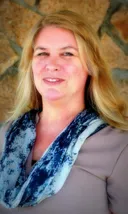Acing the Basics of Rural Hospital Workforce and Recruitment

James Kirkikis/123RF.com
You’ve just landed a new role as a rural hospital recruiter. Or maybe you’re an experienced hospital recruiter whose employer has acquired a small rural hospital. Traditional hospital recruitment strategies are the backbone of any recruiter’s wheelhouse, but you’ll need specialized tools for success in rural hospital recruitment. Too often, rural hospital recruiter onboarding doesn’t include education around the rural healthcare workforce. The savvy rural hospital recruiter will seek a primer to gain expertise and build skill in four core rural healthcare workforce areas: 1) The Value of Rural Definitions and Designations, 2) Partners and Resources in Rural Hospital Recruitment, 3) Rural Hospital Recruitment Communities and 4) Fluency in the Language of Rural Communities.
The Value of Rural Definitions and Designations
First Things First – “Am I Rural?” Rural hospital status impacts your workforce capacity building and can help inform recruitment strategies. At last count, there were around 15 commonly used definitions of rural in federal government. The Office of Management and Budget defines a county as non-metro (or rural) if there is no adjacent Census Urban Area with a population over 50,000 or there are no large areas nearby where workers regularly commute. The premiere resource for determining rural status is the “Am I Rural” website tool at https://www.ruralhealthinfo.org/am-i-rural/help#classification. Determining your hospital’s rural designation will help include or exclude programs or other benefits to your hospital and community, including grant opportunities. Bear in mind that other definitions related to rural come into play in rural hospital recruitment, like Health Professional Shortage Areas (but more about that later).
Know Rural Hospital Designations. The size of your small hospital is relevant to your rural hospital capacity building approach. Critical Access Hospitals (CAHs) provide vital community-based healthcare for highly rural communities, have fewer than 25 beds, and provide limited inpatient care. CAHs are located more than a 35-mile drive from any other hospital or CAH. Small rural hospitals with 49 available beds or less are eligible for Small Health Improvement Program (SHIP) Funding, which helps them develop value and quality healthcare improvement initiatives. All CAHs are also SHIP hospitals. Engaging the primary care workforce early and often is critical to recruiting for SHIP hospitals. Rural hospital staff and primary care providers often have an interdependent relationship. At a minimum, primary care physicians or advanced practice providers may round at the hospital, but they often fill other hospital and community leadership roles, both formally and informally. Having buy-in from those in the primary care arena is critical to selling your hospital-based opportunities to candidates and assuring a good fit for the right candidate in your hospital and community.
Partners and Resources in Rural Hospital Recruitment
Partner with your State Office of Rural Health. State Offices of Rural Health (SORHs) may be the best kept secret in the world of rural hospital recruitment. Every state has a SORH, funded through federal and state dollars. A SORH’s core mission typically involves initiatives to build rural healthcare infrastructure through workforce and other capacity building. SORHs often have dedicated staff around rural workforce and recruitment. SORH workforce staff can be your hospital’s advocate and promoter in your state’s healthcare professional and residency programs -closed-door policies to recruiters, making this workforce liaison critical to your work. More broadly, SORH staff have deep relationships with key members of rural communities and can facilitate introductions to those leaders. The National Organization of State Offices of Rural Health (NOSORH), a private not for profit, is a key resource for rural hospital recruiters seeking connection with their state’s SORH (https://nosorh.org/nosorh-members/nosorh-members-browse-by-state/).
Leverage Rural Venues like the National Rural Recruitment and Retention Network. Established in the late 90s, the National Rural Recruitment and Retention Network (www.3RNet.org) levels the playing field of rural healthcare provider recruitment. 3RNet members are housed in state-based organizations and liaise with healthcare employers from rural hospitals, Federally Qualified Health Centers, Rural Health Clinics, and other underserved care settings. 3RNet members identify and screen rural-oriented physicians, nurse practitioners, psychiatrists, hospital physicians, and a host of others through a national platform and database. Some 3RNet state members offer rural hospital job promotion at low cost while others share promotion without cost. Each 3RNet member highlights its state’s attributes on web pages and connects directly with rural-oriented providers who sign up for the site. Check with your state 3RNet member about its policies around rural hospital job promotion. Finally, the 3RNet’s Academy learning series is tailored to engage rural recruiters from a bootcamp perspective to a higher level, more nuanced recruitment role. This six-webinar series is reasonably priced and offered throughout the fall and early winter (https://academy.3rnet.org/).
Identify Applicable Loan Repayment Programs. Understanding federal and other loan repayment programs is an important part of rural hospital recruitment. Through HRSA’s National Health Service Corps loan repayment program (NHSC LRP), clinical staff in ambulatory primary care settings is eligible for federal loan repayment programs (https://nhsc.hrsa.gov/loan-repayment/nhsc-loan-repayment-program.html). CAH hospital-based clinicians may be eligible for NHSC LRP, provided they are co-located in ambulatory primary care practices. To be eligible for NHSC’s loan repayment program, all hospital or ambulatory care sites must go through a rigorous site application. NHSC LRP awards are prioritized by highest Health Professional Shortage Area (HPSA) scores and a measure of available, primary health care services at the facility, community, or county level. The national opioid epidemic has driven HRSA funding for Substance Use Disorder loan repayment for a subset of behavioral health care clinicians as well (https://nhsc.hrsa.gov/loan-repayment/nhsc-sud-workforce-loan-repayment-program.html). Though extremely competitive, the HRSA Nurse CORP Loan Repayment program is open to hospital-based nurses in critical shortage areas. This program prioritizes funding based on shortage area and high debt to salary ratio (https://bhw.hrsa.gov/loans-scholarships/nurse-corps/loan-repayment-program/determine-eligibility-and-apply). Some states host loan repayment programs (SLRP) open to hospital clinical staff, while others have rural-specific scholarships for medical students planning to work in rural hospitals (https://thecollegeinvestor.com/student-loan-forgiveness-programs-by-state/). Learn which programs your hospital clinical staff or candidates are eligible for to tailor language for job promotion and dissemination.
Rural Hospital Recruitment Communities
Build your Personal Rural Hospital Recruitment Network IRL and Online. Look for like-minded rural hospital recruiters at partnering organizations. When joining the Association for Advancing Physician and Provider Recruitment (AAPPR) https://aappr.org/membership/, be sure to also connect with your AAPPR regional or state-based affiliate. Members from these affiliates will be an invaluable resource to tackle common rural hospital recruitment challenges and serve as your new recruiter sounding board. If your affiliate has a rural focused group – get involved. If no such work or initiative exists, offer to lead and develop one. Look for your state’s SHIP hospital list to identify other potential recruitment mentors. If you are physically located in a SHIP hospital or can commute there, join local business groups to gain familiarity with the community and an understanding of their priorities. For those in large systems recruiting for rural hospitals, stay engaged via social media through community and hospital efforts. Use the hashtags #goodforrural and #powerofrural to network with likeminded folks both in and out of healthcare.
Fluency in the Language of Rural Communities
Promote a Passion for Rural While Finding Balance. There’s an age-old and hopefully now settled debate around clinicians living in the communities in which they serve. You should curb any expectation that all new providers will live in the community. Some will, others won’t. In the past, rural healthcare professionals largely accepted that working and living in the community meant providing on the spot diagnoses at school functions or the grocery store. A colleague of mine once described a patient who sometimes showed up at the local rural provider’s house seeking medical care outside of practice hours. Today, healthcare providers expect and deserve work/life balance (and separation.) It’s no longer necessary for the rural hospital recruiter to sell the community to the candidate in terms of planting roots through home ownership. Focus on the amenities - no bumper-to-bumper traffic, beautiful landscapes, the delicious lunch at the local grocery store (yes, rural grocery stores do serve the best lunches, especially in the South). There’s a delicate balance in highlighting the importance of provider connection with the community while not expecting them to live there. When it comes to discussing avenues for play/leisure, shopping, and schools systems, don’t try to downplay, but describe what’s available in proximity to your rural community if these are either inaccessible or lacking in quality. Lastly, get to know the community. Learn how residents view it to shape your perspective, which will help you promote the community to candidates in a comprehensive, authentic, and favorable light. For help with identifying your hospital and community assets, consult with Dr. Dave Schmitz and the Community Apgar Program (https://www.ruralhealthinfo.org/rural-monitor/interview-with-david-schmitz/). This evidence-based program helps identify assets and gaps in rural hospital/community alignment around workforce and recruitment initiatives.
Align with Rural Community Attitudes. Every rural hospital is a living product of healthcare providers and citizens working together to sustain community-based, timely hospital care, often in the face of socio-economics challenges and geography. Too often members of rural communities have experienced a loss - be it the closing of a manufacturing plant down the street, or a merger falling through that promised new jobs. Building trust is paramount and tough to do. It comes down to people – meeting, connecting with, and finding a common goal – an engaged, retained healthcare workforce to help your rural hospital and community thrive. When matched with the core facets of rural healthcare workforce, the key to successful rural hospital recruitment comes down to authentic connection with people.
Advertise Rural Healthcare Positions at HospitalRecruiting.com!
HospitalRecruiting.com is also an ideal venue for advertising rural healthcare positions. Our job boards are both highly visible to healthcare job seekers, and economical for healthcare recruiters. View our pricing info here, and feel free to contact us with any questions.
Related Posts
